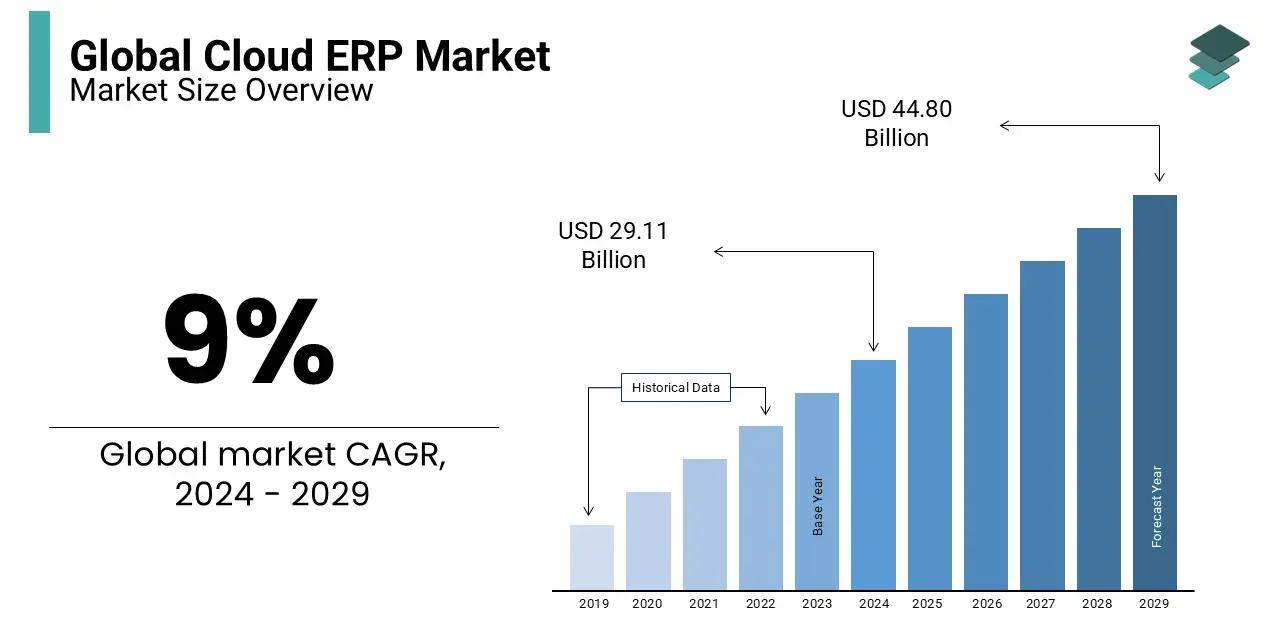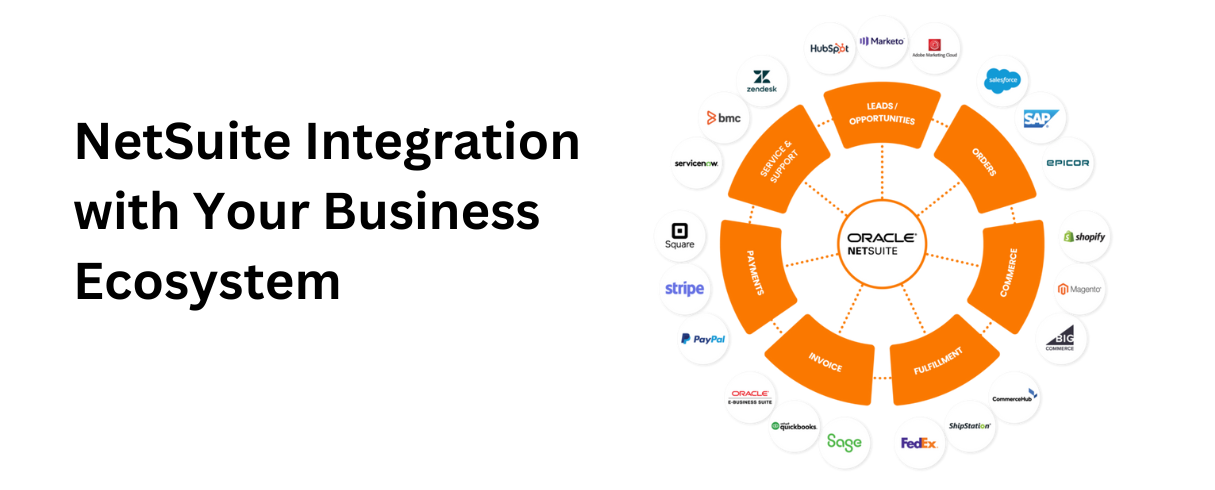A Detailed Guide on NetSuite Pros and Cons
Nov 05, 2024

NetSuite is a leading cloud-based Enterprise Resource Planning (ERP) solution that has transformed the way businesses operate. By providing an integrated suite of applications, including financial management, customer relationship management (CRM), eCommerce, and professional services automation, NetSuite enables organizations to streamline their processes and improve operational efficiency.
However, like any software solution, it comes with its own set of advantages and disadvantages. Understanding the pros and cons of NetSuite is essential for businesses considering this platform.
In this blog, we will explore the strengths that make NetSuite a popular choice among organizations, as well as the potential drawbacks that should be carefully considered before making a commitment.
Before diving into the full details, here’s a snapshot of NetSuite’s key advantages and potential drawbacks. Use this table as a quick reference, but read the detailed pros and cons sections below to understand how NetSuite can impact your business.
| Pros | Cons |
|---|---|
| Manage finance, CRM, inventory, and eCommerce in one system. | Subscription fees, implementation, and module add-ons can be expensive. |
| Cloud-based access allows work from anywhere. | Setup can take months, especially for larger organizations. |
| Easily scales as your business grows or expands internationally. | Users often require extensive training to fully leverage the system. |
| Real-time dashboards and reporting provide instant insights. | Cloud-based system relies on a stable internet connection. |
| Tailor workflows, add custom fields, and integrate with other apps. | Some industry-specific features require extra purchase. |
| Supports multi-currency, multi-language, tax compliance, and multi-entity management. |
NetSuite has gained significant popularity among organizations of all sizes, primarily due to its extensive capabilities and the advantages it offers. Here are some of the key benefits of using NetSuite as your ERP solution:
NetSuite combines finance, CRM, inventory management, order management, and eCommerce in a single system. Instead of juggling multiple tools, you get a unified platform where data flows seamlessly between departments. This reduces errors, improves efficiency, and ensures everyone has access to the same real-time information.
Being cloud-based means you can access NetSuite from anywhere, on any device with an internet connection. This is especially valuable if your team works remotely or across multiple locations. Users can log in from any location with an internet connection, enabling remote work and collaboration among teams across different geographical areas.
This flexibility is particularly beneficial for businesses that have adopted hybrid or fully remote working models, as it allows employees to stay connected and productive from anywhere. So this way:
 Source: market data forecast
Source: market data forecast
Whether expanding teams, increasing transaction volumes, or entering new markets, NetSuite scales seamlessly to meet evolving business needs. This flexibility allows growing businesses to add users, modules, or locations without worrying about system limitations, ensuring that growth is supported without disruptive IT overhauls.
NetSuite provides access to live operational and financial data, allowing managers to monitor performance continuously rather than waiting for end-of-month reports. Real-time dashboards give a complete view of sales, cash flow, inventory, and other KPIs, enabling faster decisions, proactive issue resolution, and strategic planning with confidence.
NetSuite can be tailored to match your actual business processes rather than forcing your operations to fit the software. From automating approvals to creating industry-specific applications, the customization options allow companies to operate efficiently while accommodating unique workflows. Businesses can optimize processes, improve adoption, and reduce dependency on manual interventions.
NetSuite can seamlessly connect with various third-party tools, reducing data silos and enabling cohesive operations. Whether integrating with CRMs, eCommerce platforms, or payment gateways, the system ensures data flows smoothly across all applications, helping businesses maintain accuracy and efficiency.

For companies operating internationally, NetSuite simplifies the complexity of cross-border operations. Multi-currency, multi-language, and tax compliance features allow businesses to manage subsidiaries, regulatory requirements, and localized reporting from a single platform. This reduces operational friction and ensures consistency across regions.
NetSuite ensures your business data remains secure while complying with global regulations. Role-based access, encryption, and continuous monitoring protect sensitive information, while compliance features help companies meet GDPR, CCPA, and other standards without extra effort.
NetSuite uses AI to enhance operational efficiency, reduce manual work, and provide actionable insights. AI features in NetSuite can automate routine tasks, forecast trends, and help tailor customer experiences, enabling businesses to operate smarter and make decisions based on data rather than guesswork.
NetSuite’s AI Connector Service allows you to integrate external AI models directly with your ERP system, bringing advanced intelligence and automation into everyday operations. This means your teams can leverage AI insights without switching platforms, helping you make faster, data-driven decisions.
NetSuite provides regular updates to deliver the latest features, improve performance, and enhance the user experience. Businesses benefit from new functionality and interface improvements without disruption, ensuring the system evolves alongside industry and operational demands.
While NetSuite offers a wealth of advantages, it is not without its drawbacks. Businesses should carefully consider these potential challenges before committing to this ERP solution. Here are some of the key cons of using NetSuite:
NetSuite is a comprehensive ERP solution, but that breadth comes with a cost. For small or budget-conscious businesses, understanding the Oracle NetSuite cost is crucial, as subscription fees, implementation charges, and ongoing maintenance can quickly add up. While the investment can be justified by the features and scalability, it may be prohibitive for companies that only need basic ERP functionality.
While NetSuite’s core ERP functions are robust, many advanced or industry-specific features require purchasing additional modules of NetSuite ERP. These modules often come with extra fees, require integration effort, and can increase system complexity. Businesses must carefully plan which modules are essential to their operations and budget accordingly.
Setting up NetSuite can be time-intensive, especially for organizations with unique workflows or complex processes. The system’s flexibility requires careful planning, configuration, and sometimes expert guidance, which can extend the NetSuite implementation timeline and demand dedicated resources.
NetSuite’s extensive functionality can be overwhelming for new users. Teams often need structured training to become proficient, which may temporarily impact productivity. Businesses must plan for adequate onboarding and ongoing support to ensure users can leverage the system effectively.
As a cloud-based platform, NetSuite relies on internet connectivity. In situations where connectivity is unreliable, access to critical business functions may be limited. While most businesses operate in connected environments, companies in remote areas or with intermittent access may face challenges.
Although NetSuite is highly customizable, creating workflows, fields, or applications to meet specific business needs can require technical expertise. Over-customization can also complicate maintenance, increase costs, and make future upgrades more complex if not managed carefully.
While NetSuite provides strong real-time reporting, configuring highly complex or highly specialized reports can require advanced knowledge of the system. Users without technical experience may find it challenging to extract certain insights without support.
NetSuite is designed for businesses that need more than basic accounting or inventory tools. Its strength lies in providing a fully integrated ERP system that can scale with growth, manage complex operations, and provide real-time insights across departments.
Companies that fit this profile are likely to benefit the most:
Companies experiencing rapid expansion, whether in users, products, or locations, will find NetSuite’s scalable architecture essential. It adapts as your business grows without requiring major system overhauls.
Organizations with multiple departments, subsidiaries, or intercompany transactions can leverage NetSuite to unify finance, inventory, HR, and CRM in a single system.
Companies with cross-border operations, multiple currencies, or diverse tax and regulatory requirements can take advantage of NetSuite’s multi-currency, multi-language, and tax compliance features.
Manufacturing, wholesale distribution, retail, and service-based businesses often require specialized workflows and reporting. NetSuite’s modular design and industry-specific solutions make it suitable for these sectors.
Businesses that rely on accurate, up-to-the-minute data for decision-making, forecasting, and operational efficiency will benefit from NetSuite’s dashboards, reporting tools, and automation capabilities.
While NetSuite offers many advantages, it may not be the right choice for everyone. Here are some scenarios where businesses might find NetSuite less suitable:
Small businesses or startups with tight budgets may find NetSuite’s subscription and implementation costs prohibitive. These organizations might be better served by more affordable ERP solutions that offer essential functionalities without the extensive features NetSuite provides.
Businesses with straightforward operations and limited complexity might not require the breadth of features offered by NetSuite. In such cases, simpler software solutions may provide adequate functionality without the associated costs and complexities of a comprehensive ERP system.
Organizations with unique software requirements that are not easily customizable within NetSuite may face challenges. If a business has highly specialized processes or needs, it may be more effective to seek out software specifically designed for those needs rather than attempting to customize NetSuite extensively.
NetSuite is a comprehensive ERP solution that offers powerful tools to manage finance, inventory, CRM, and more—all from a single platform. Its scalability, real-time insights, and global capabilities make it an ideal choice for growing businesses and complex enterprises.
However, it’s important to weigh the pros and cons. High costs, the need for additional modules, and setup complexity mean that NetSuite is best suited for organizations that truly require an integrated, scalable solution.
By carefully evaluating your business needs, you can determine if NetSuite aligns with your goals and operational requirements.
If you believe NetSuite could be the right solution for your business, it’s time to take the next step. Reach out to our team of NetSuite Consultants for a personalized consultation. We’ll assess your unique business needs and guide you on how NetSuite can streamline your operations and support your growth.